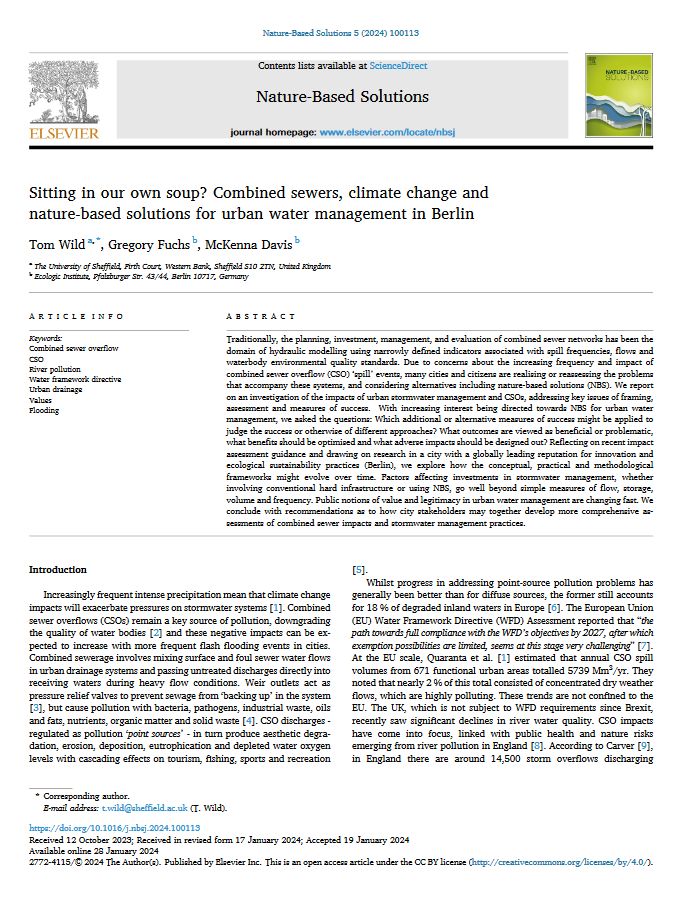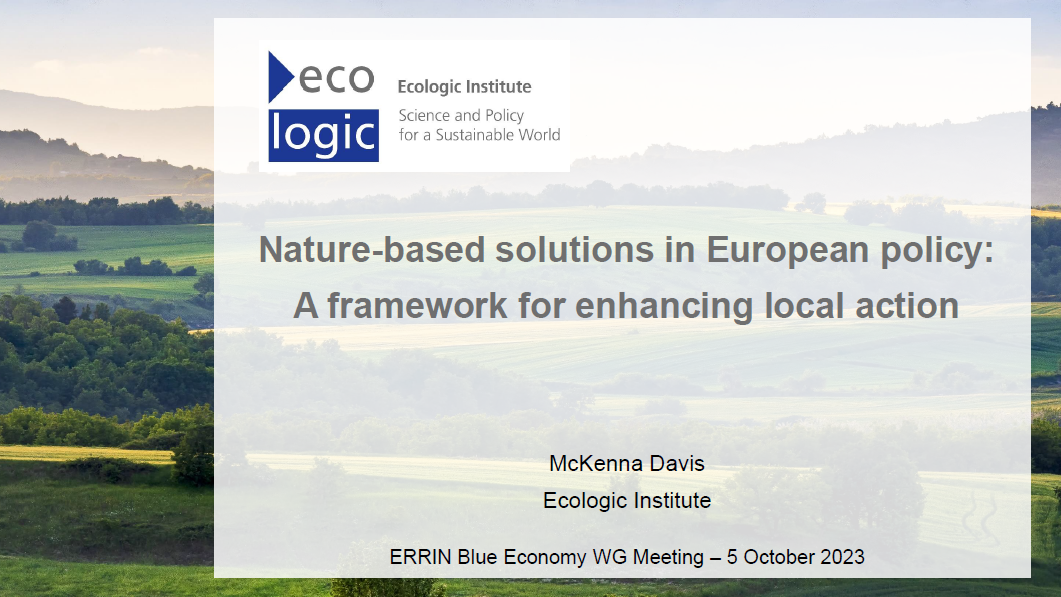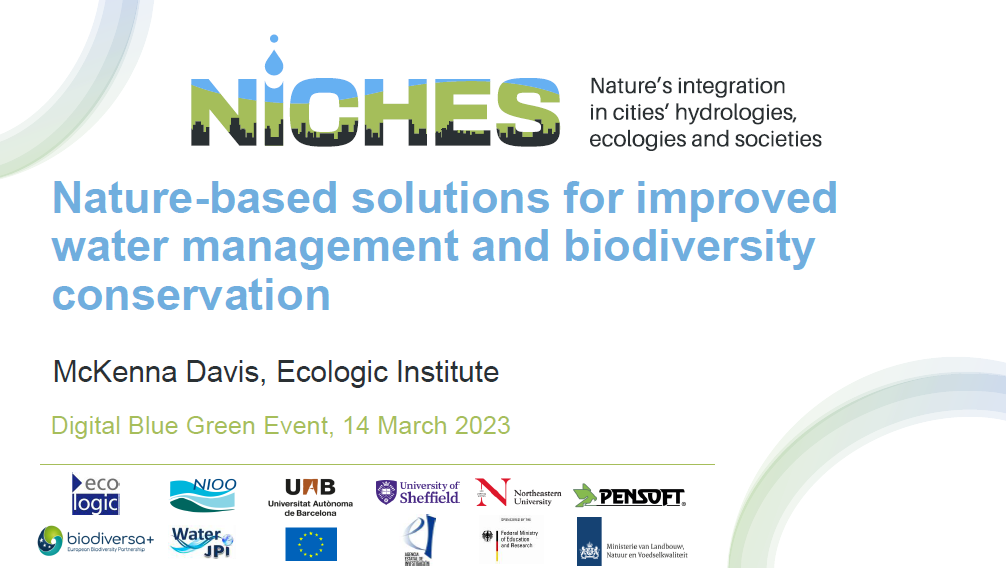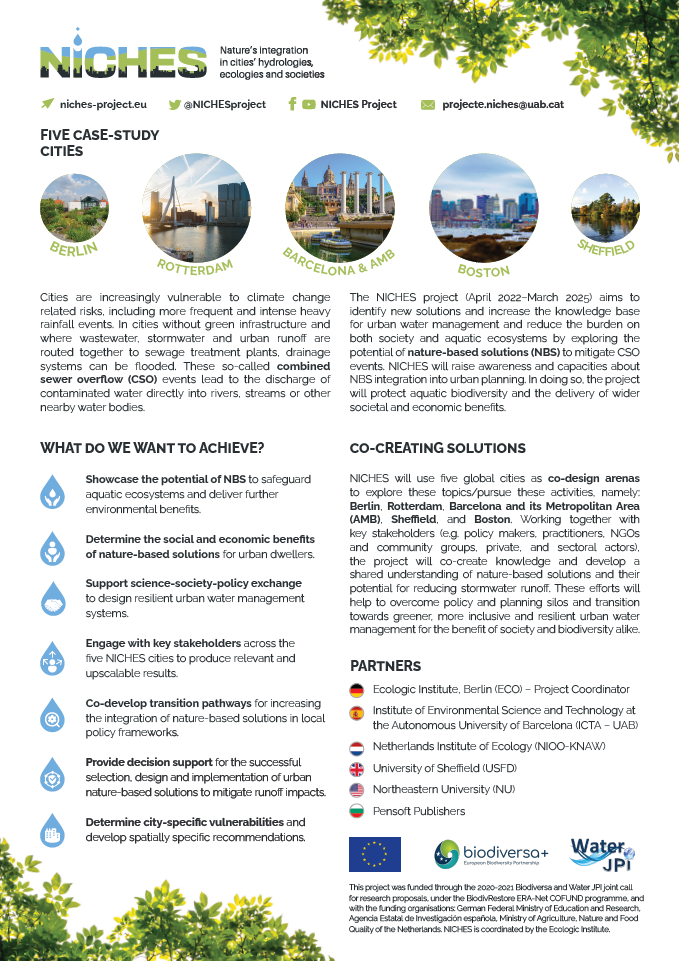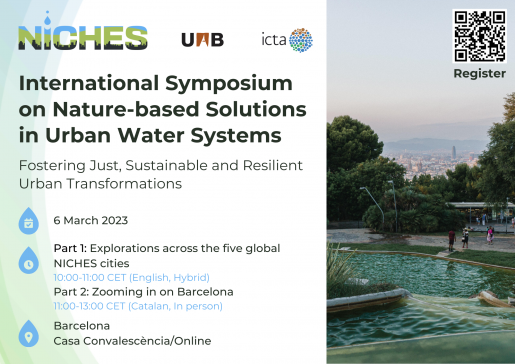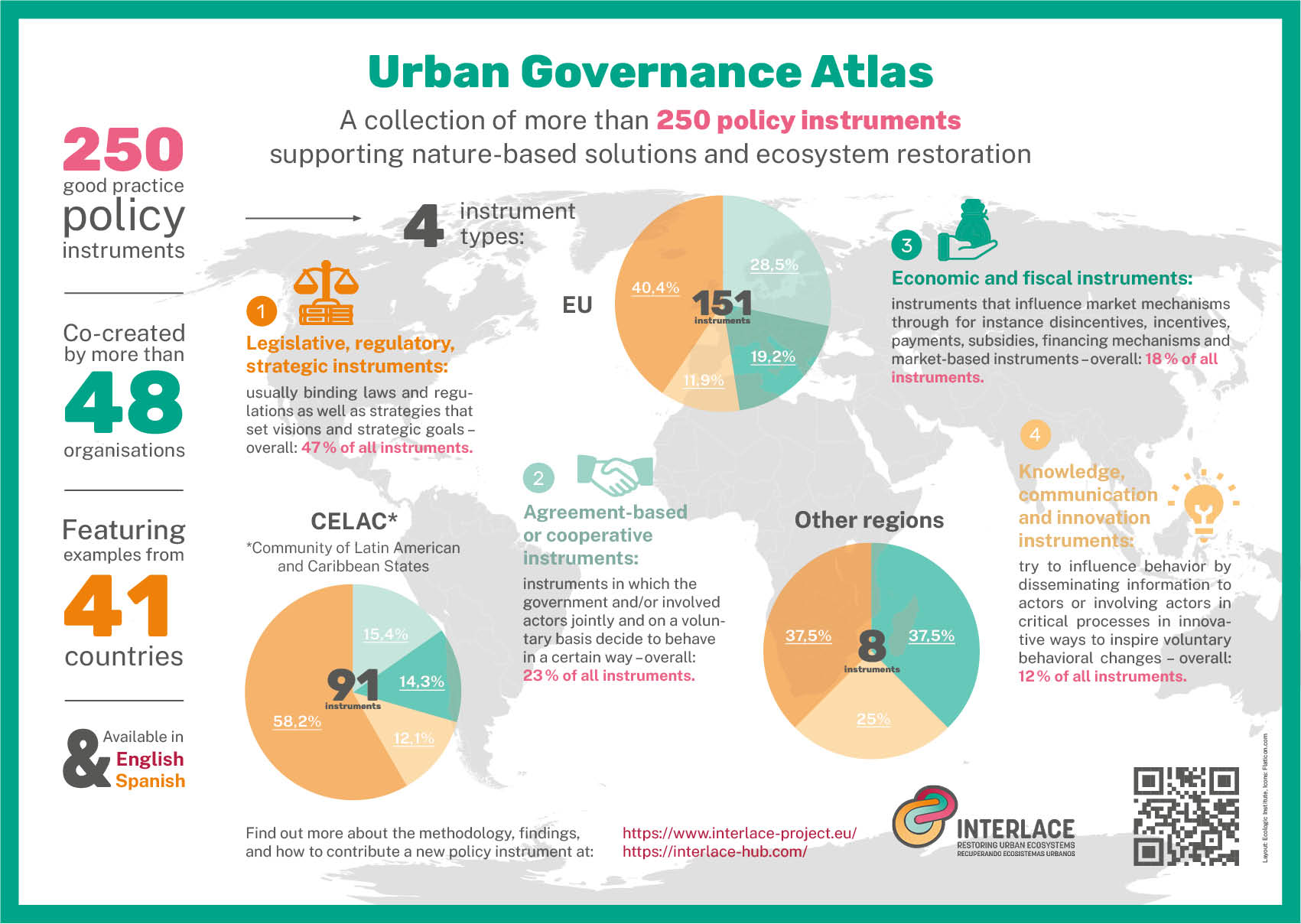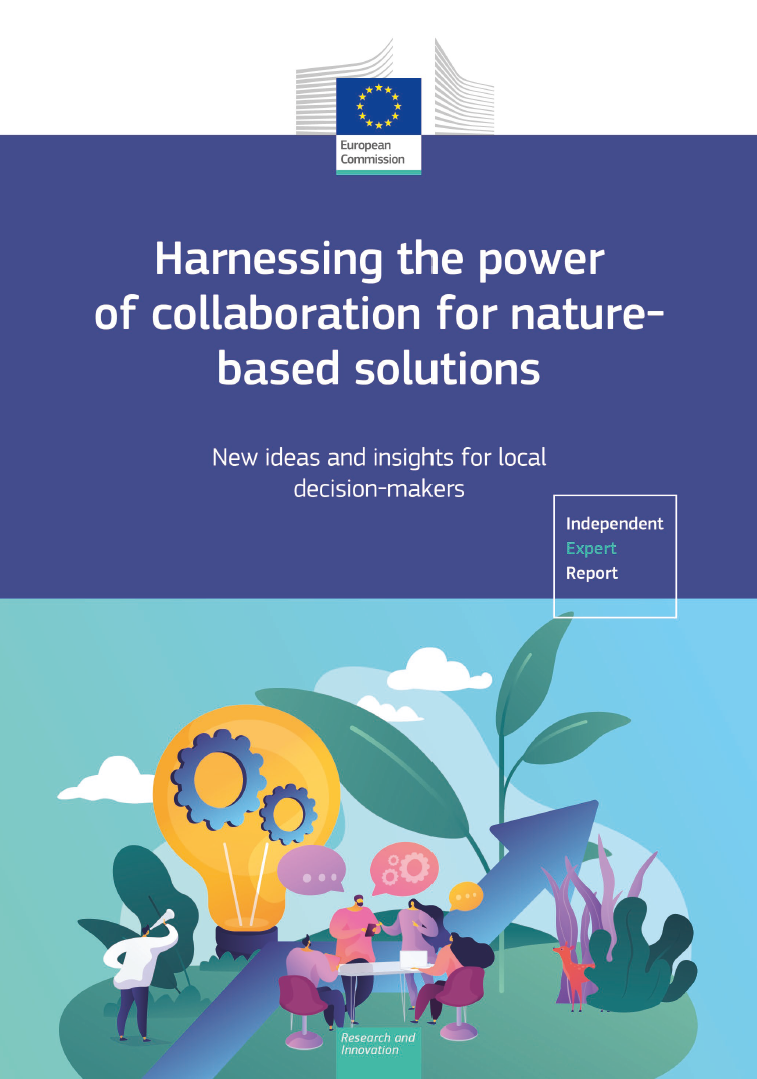Ulf Stein presenting NICHES project at Conexus Conference.
|© McKenna Davis
A Spotlight on Nature-Based Solutions
Ecologic Presentations at CONEXUS Conference
- Presentation
- Date
-
-
- Location
- Barcelona, Spain
- Speech
From 15 to 17 May 2024, Barcelona hosted the CONEXUS Conference, a flagship event bringing together over 100 experts from Europe and Latin America to discuss nature-based solutions (NbS) for climate-resilient cities. This conference was a melting pot of ideas and innovations, fostering exchange on the economic, social, environmental, and political facets of NbS implementation.
Among the key sessions were "Governance, Politics, and Planning" and "Economics, Values, and Work," where Ecologic experts Dr. Ulf Stein, McKenna Davis, and Jenny Tröltzsch shared their research and insights.
Governance, Politics, and Planning: Dr. Ulf Stein's Presentation on the NICHES Project
Dr. Ulf Stein delivered an insightful presentation on the NICHES project, which addresses urban stormwater management challenges.
His talk focused on the NICHES project, which explores innovative solutions to mitigate Combined Sewer Overflow (CSO) incidents in five cities: Berlin, Barcelona, Boston, Rotterdam, and Sheffield. He presented a governance analysis conducted to assess the incorporation of restorative NbS within urban water Socio-Ecological-Technological Systems (SETS), focusing on governance and institutional frameworks. Using literature analysis and stakeholder interviews, the study identified effective governance models, policy instruments, barriers and enablers to NbS adoption.
Key findings revealed the complexities of institutional processes and coordination mechanisms. By identifying best practices from multiple cities, his presentation offered valuable insights into transitioning to enhanced CSO management.
Key questions addressed in the "Collaborative Approaches and Guidance for cities worldwide" discussion focused on the combination of traditional governance approaches with innovative once, as one of the findings of the analysis revealed a good mixture of both, to be a successful model for NbS implementation. The findings from the NICHES project provide robust guidance for cities worldwide, offering a pathway for decision-takers for integrating NbS to tackle climate-related urban water challenges.
Governance, Politics, and Planning: McKenna Davis's Insights from the Urban Governance Atlas
McKenna Davis introduced the Urban Governance Atlas (UGA), a comprehensive resource developed under the INTERLACE project. The UGA addresses governance questions surrounding NbS and ecosystem restoration, particularly within European and CELAC contexts.
The UGA presented by McKenna delves into over 250 good practice policy instruments, including legislative, economic, cooperative, and knowledge-based frameworks. By highlighting real-world examples, the UGA bridges the gap between theoretical governance models and practical applications. McKenna emphasized the participatory landscape of NbS governance, showcasing how inclusive policy and governance can enhance decision-making processes and mainstream just, sustainable, and multifunctional NbS. Her talk provided actionable insights and inspiring examples that transcend traditional silos, fostering a more resilient and equitable urban future.
Economics, Values, and Work: Jenny Tröltzsch's Socio-Economic Assessment of NbS
Jenny Tröltzsch presented a comprehensive socio-economic assessment of nature-based solutions for urban stormwater management, drawing on research from the AMAREX project.
Urban areas, with their high levels of land sealing and building density, are particularly vulnerable to extreme weather events like flooding and heat waves. Jenny's presentation highlighted how modern stormwater management and NbS, inspired by the "sponge city" concept, can mitigate these impacts while offering environmental, social, and economic benefits such as improved health, biodiversity, recreational opportunities, and job creation.
The assessment emphasized the importance of evaluating both the costs and the diverse benefits of NbS from a societal perspective. This comprehensive view is crucial because private investors often overlook the broader advantages of NbS, which can significantly alter the cost-benefit analysis in favor of these solutions.
Jenny also discussed different decision support tools and governance instruments to strengthen water-sensitive urban planning and support drought-related decision-making. Her presentation offered valuable insights into the socio-economic impacts of NbS and practical guidance for integrating these solutions into urban planning to address climate-related challenges.
In summary, the presentations by Ulf Stein, McKenna Davis, and Jenny Tröltzsch at the CONEXUS Conference underscored the critical role of innovative governance, inclusive policy frameworks, and holistic analysis in advancing nature-based solutions for urban resilience.





